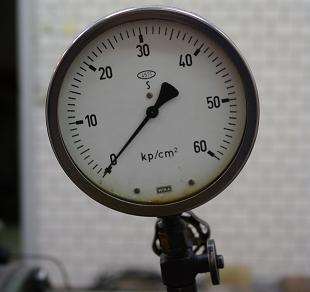
Let’s face it: a sales negotiation is a high-pressure situation. With all that is expected of you, thinking clearly can be a challenge even for the best of us. That’s why the best sales negotiators have developed a whole series of techniques that allow them the time that they need to do a good job of thinking under pressure…
It Takes A Village To Think Under Pressure
As sales negotiators, we think pretty highly of ourselves. When it comes to making decisions under pressure, however, we’re no better than the next guy. That’s why when we have the option, we should never go it alone.
Instead, when we attend a sales negotiation we should always bring along someone else from our team, and more if we can get away with it. The thinking here is pretty simple. By having multiple people on your team, you’ll have an excuse for everything to take longer. You’ll need to discuss things, come to a consensus, look things up, etc.
All of these activities take time. This is time that you can use to think about the current negotiating situation and make decisions about what you want to do next. It does seem to slow down the overall negotiations; however, this extra time is exactly what you need in order to be able to make good decisions under pressure.
It’s Recess Time (Again)!
Nobody ever said that you needed to sit down at the negotiating table and not get up again until you’ve reached a deal with the other side. In fact, you are probably not going to be happy with the deal that you agree to if you negotiate this way.
Instead, a better way of doing things is to take frequent breaks throughout the negotiations. Every time you take a break, use the time to go over your notes, think about how you want to respond to what has been said by the other side, and perhaps even adjust your strategy.
It’s my opinion that you can’t take too many breaks during a negotiation. If the other side really wants to strike a deal with you, they’ll have to go along with all of your break requests. The more time that you have to think, the better the final deal that you’ll be able reach.
The Long Pause
Rare is the sales negotiation that can be completed in a single day. This opens an opportunity for you to buy yourself more time to make better decisions.
Take a look at the calendar before the negotiations start. Are there any natural breaks that are going to occur during the negotiations: a meal, the end of the day, a weekend, a holiday, etc.? Once you’ve identified such a break, use it to your advantage.
Suggest an agenda that will result in the other side using the available time to lay out their position. You want them to use up all of the available time. Feel free to ask questions about the material that they are presenting in order to ensure that there is no time left over.
When you reach the natural breaking point, suggest that the break be taken and that you’ll respond to what has been presented after the break. By doing this you ensure that you’ll have the maximum amount of time to consider what the other side has presented and you’ll be able to make your best decisions – not under pressure!
What All Of This Means For You
Top sales negotiators know that in order to get the best deal possible, they are going to have to do a good job of thinking under pressure. The trick to doing this well is to set things up so that you have the time that you need to make good decisions.
In order to provide yourself with the time that you’ll need, make sure that you bring people with you to your next negotiation. Once there, don’t be afraid to take many breaks – these allow you time to think and change your strategy. Finally, schedule the negotiation so that you have the maximum amount of time after the other side has presented their position before you have to respond to it.
By allowing yourself enough time to think about what your next move is going to be, no matter how much pressure you are under, you will always come out of a negotiation in a better position. The key to long-term negotiating success is to find ways to provide yourself with enough time to make the correct decisions. Now you know how to do this!
– Dr. Jim Anderson
Blue Elephant Consulting –
Your Source For Real World Negotiating Skills™
Question For You: How long do you think you should spend negotiating before you call your next break?
![]() Click here to get automatic updates when The Accidental Negotiator Blog is updated.
Click here to get automatic updates when The Accidental Negotiator Blog is updated.
What We’ll Be Talking About Next Time
When we start a sales negotiation, we have certain expectations about how it’s going to go. If we’re selling something, then we believe that the other side will state what they are interested in buying, we’ll have some discussions and we’ll eventually provide them with a proposal. We then expect them to react to the proposal and that’s when the real negotiating starts. However, what happens if they don’t react at all…?
